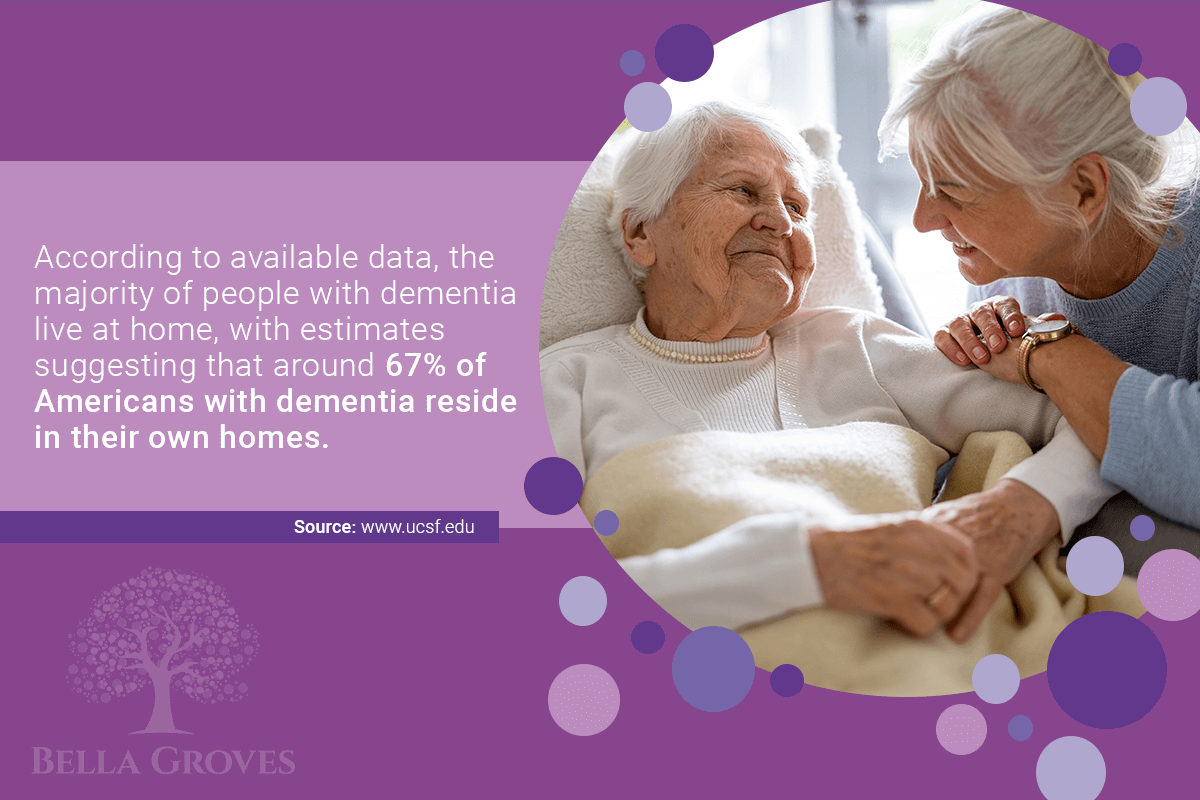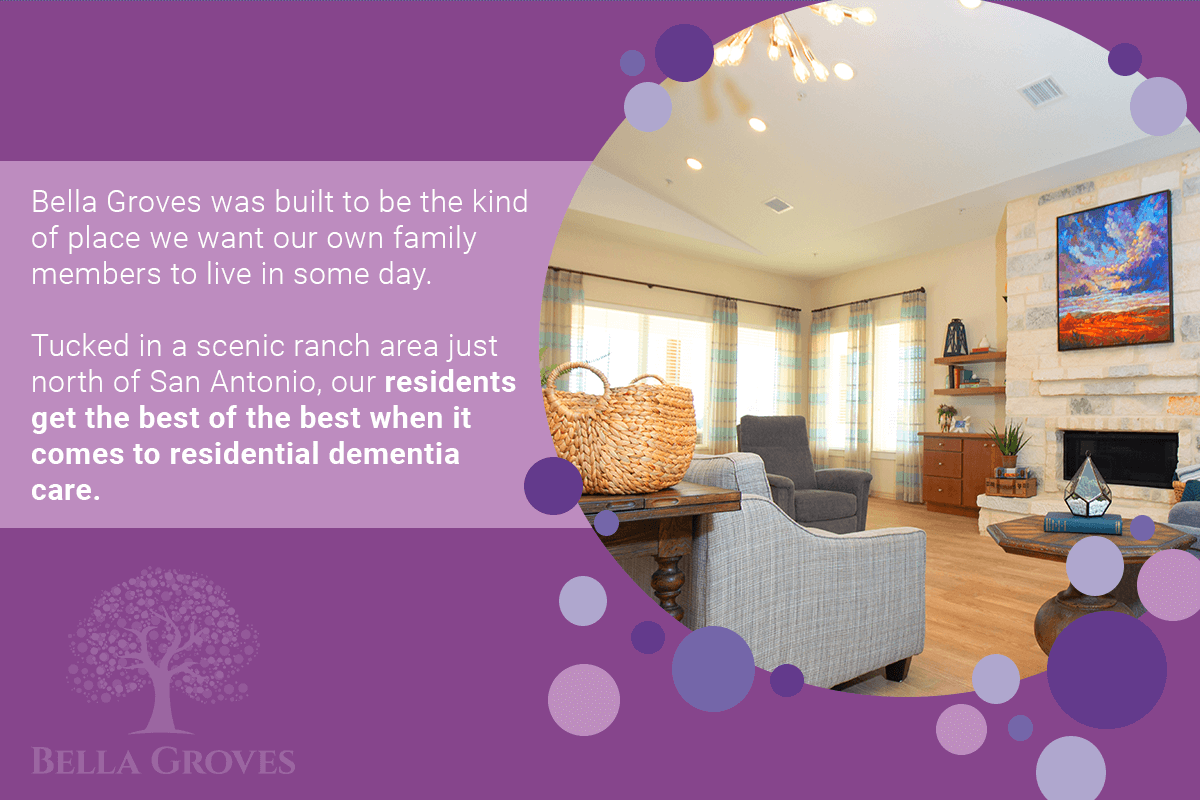
How Long Can I Provide At-Home Dementia Care for a Loved One?
Navigating the reality of dementia can feel overwhelming. Watching someone you love slowly change due to the effects of dementia is difficult, and the responsibility of caregiving often brings a mix of devotion and exhaustion. Today, with dementia increasingly affecting families worldwide, many caregivers are faced with a poignant question: how long can I provide at-home dementia care?
This is an important and deeply personal consideration. While home care provides a comforting environment for your family member, it can become increasingly challenging as dementia progresses. That’s where Bella Groves comes in—not just as a solution for advanced memory care in San Antonio but as a source of guidance and support for those caring for individuals at home.
Our team will walk you through the factors to consider when making decisions about dementia care, helping you recognize when support may be needed and empowering you to make those choices with confidence and compassion.
Understanding Dementia
First, it’s essential to understand what dementia is and how it progresses over time. Dementia is not a singular disease but rather a term that describes a collection of symptoms caused by disorders affecting the brain. Alzheimer’s disease is the most common form, though others, like vascular or Lewy body dementia, also exist.
In the beginning stages, symptoms might include mild memory loss or occasional confusion. Many caregivers can manage this phase at home with adjustments to daily routines and added patience. However, as dementia advances, it often brings significant cognitive decline, behavioral challenges, physical dependency, and around-the-clock care needs.
For family caregivers, this progressive nature of dementia is critical to keep in mind. What begins as a manageable situation may evolve into something that can overwhelm even the most loving and committed caretakers.
Assessing Your Family Member’s Needs
Caring for someone with dementia requires more than unconditional love—it requires understanding where they are in their dementia progression and anticipating their evolving needs. Caregiving demands can vary depending on whether your family member is in the early, middle, or late stages. Conducting a needs assessment is an invaluable first step in evaluating how well you can meet their requirements at home.
Ask yourself questions about their daily needs. Are they able to manage basic tasks like dressing, bathing, or eating with little assistance? Are they becoming agitated or withdrawn? Are there any safety concerns, such as wandering or frequent falls?
Paying close attention to their behaviors and abilities will clarify their level of care and help identify areas where additional support is needed. This ongoing assessment will ensure that your family member receives the appropriate type of care throughout their dementia journey.
Planning and Organizing Care
Being a family caregiver is often a full-time commitment, and planning ahead can make a significant difference in managing your responsibilities. Developing a detailed care plan gives structure to your day and keeps both your and your relative’s needs at the forefront.
Begin by creating a routine that accommodates their abilities and preferences. Incorporate activities that stimulate their cognitive and emotional well-being, whether it’s listening to favorite music or revisiting simple, familiar tasks.
Don’t be afraid to seek help. Surrounding yourself with a network of support—family members, friends, or community resources—can ease the load. Services like adult day programs, in-home aides, or meal delivery programs can provide relief, allowing you to balance caregiving with your own needs.
At Bella Groves, we understand the importance of these small, innovative shifts in caregiving. Part of our mission is to help caregivers access resources and information that enable them to continue providing exceptional care at home until more specialized support is necessary.
Coping with the Emotional and Physical Demands
It can’t be overstated—taking care of yourself is just as important as taking care of your family member. Caring for someone with dementia is both emotionally and physically demanding. Many caregivers feel burnout, frustration, guilt, and even sadness. These emotions are completely normal, but they require attention and care.
Creating moments for self-care is essential. Even a short daily walk, meditation practice, or chatting with a friend can offer a reset. Joining caregiver support groups offers emotional validation and practical coping strategies from others who understand the challenges you face.
Additionally, don’t hesitate to address your own mental and physical health with professionals. Seeking counseling or consulting your healthcare provider allows you to manage stress effectively, ensuring you’re well enough to continue your caregiving role. Remember—your well-being is critical to sustaining the care of your family member.
When Home Care is No Longer Sustainable
While home caregiving is a beautiful way to support your relative, there often comes a time when providing adequate care requires more hands-on expertise. Recognizing when at-home dementia care is no longer feasible is one of the most difficult yet important decisions you may face as a caregiver.
Signs that it may be time to transition to alternate care include persistent safety concerns, significant physical strain on the caregiver, unmanaged behavioral challenges, or the inability to meet medical needs.
At this point, exploring memory care communities in San Antonio, like Bella Groves, becomes an essential step. We provide a nurturing environment tailored specifically for individuals living with dementia, offering not only personalized care but also a sense of belonging. With care partners trained to handle the unique complexities of dementia, communities like ours ensure your family member receives compassionate, expert attention while allowing you to focus on cherishing the relationship you share.
Explore the Support You Deserve
Caring for someone with dementia is a profound act of love, but it can also be one of the most challenging paths to walk alone. Every caregiving decision—from assessing needs to navigating care options—is deeply personal and deserves the utmost compassion and support.
At Bella Groves, we are here to help families find a balance between providing exceptional care and practicing self-care. If you feel uncertain about the next step in your caregiving role, don’t hesitate to reach out. Schedule a consultation with our team to explore how Bella Groves can support both you and your family member on this delicate journey.


